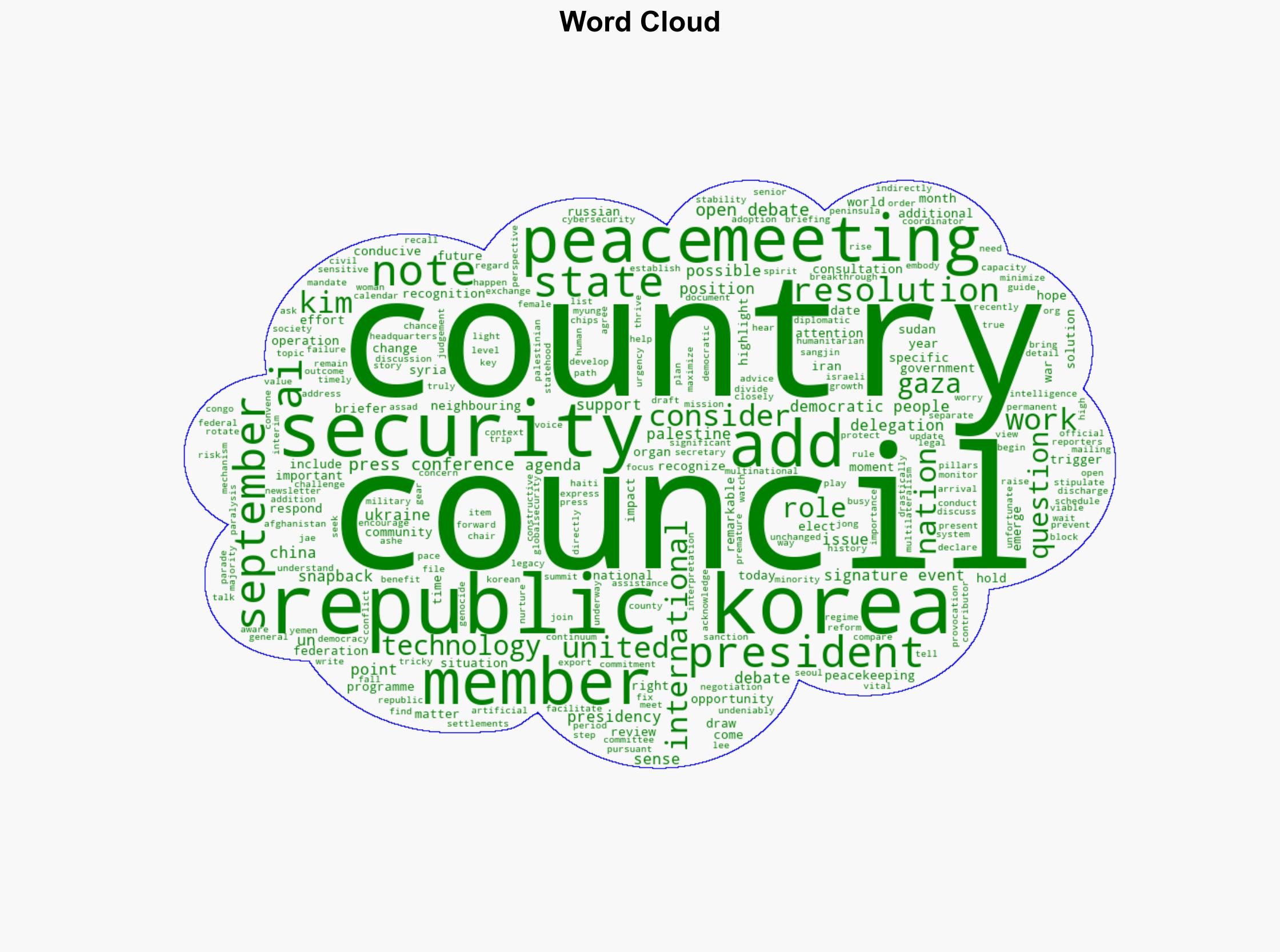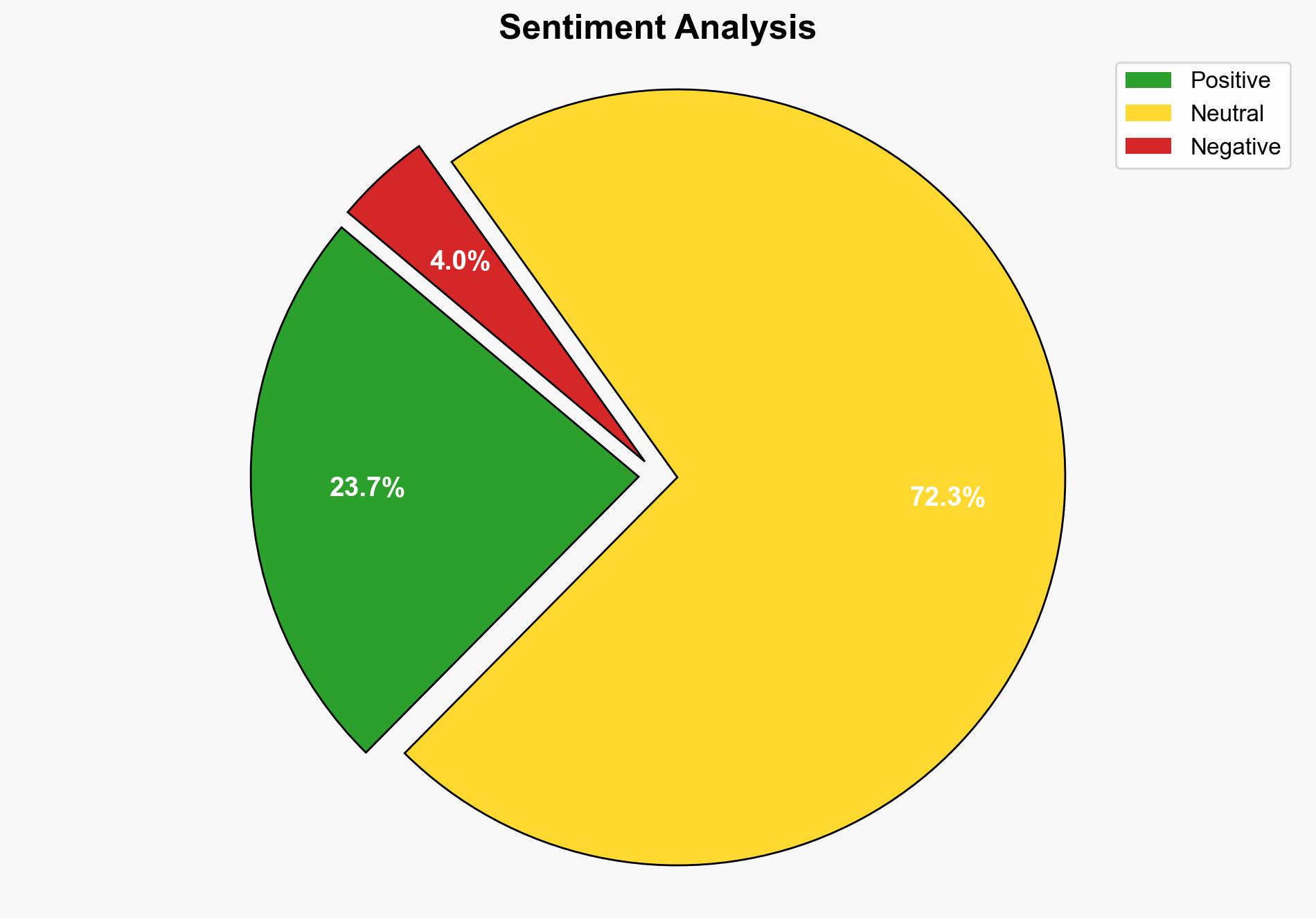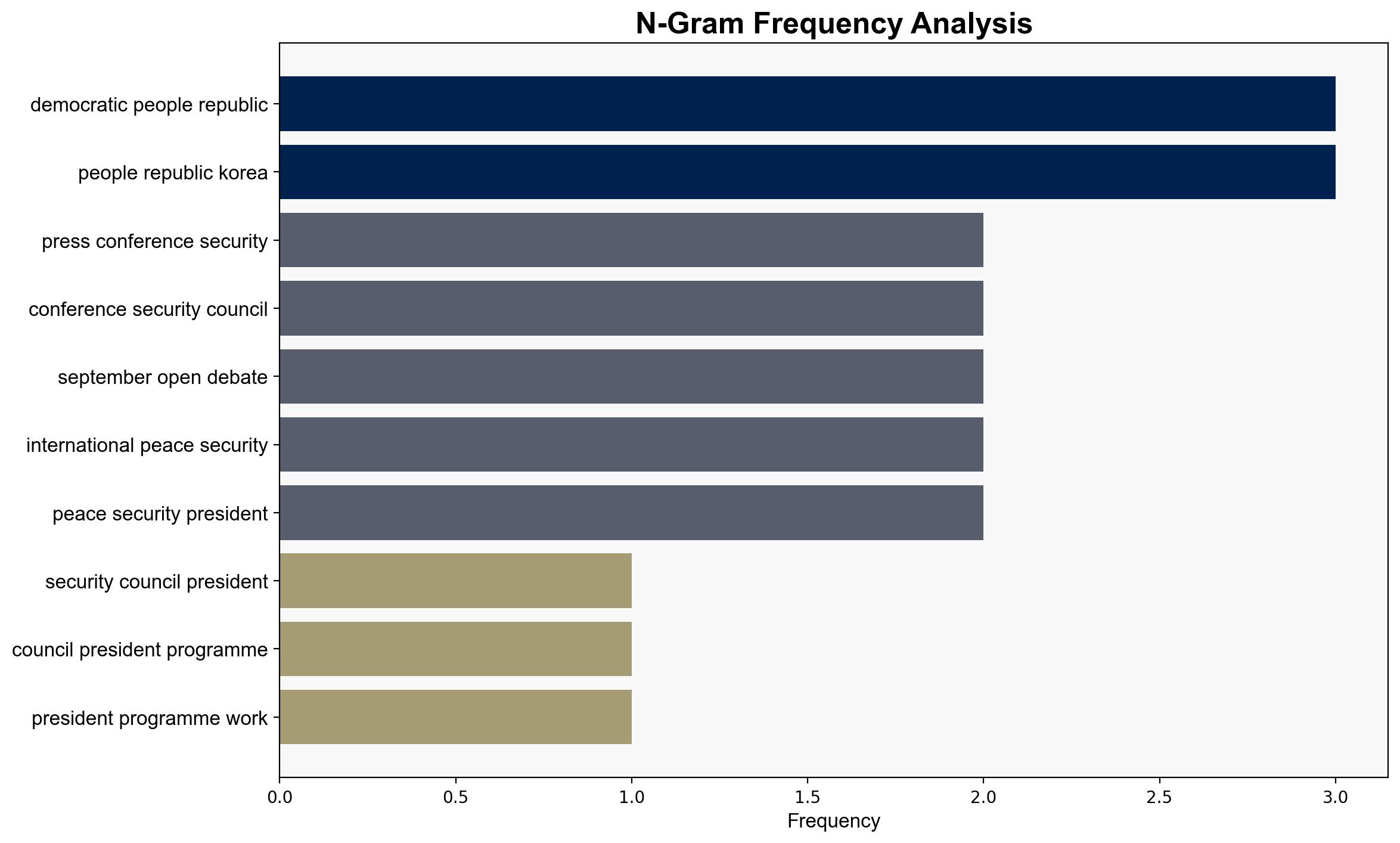Press Conference by Security Council President on Programme of Work for September – Globalsecurity.org
Published on: 2025-09-03
Intelligence Report: Press Conference by Security Council President on Programme of Work for September – Globalsecurity.org
1. BLUF (Bottom Line Up Front)
The most supported hypothesis is that the Security Council’s focus on artificial intelligence (AI) and emerging technologies reflects a strategic shift towards addressing non-traditional security threats. This aligns with the Republic of Korea’s emphasis on technology’s impact on international peace and security. Confidence Level: Moderate. Recommended action includes enhancing diplomatic efforts to establish international norms for AI use in peacekeeping and conflict prevention.
2. Competing Hypotheses
1. **Hypothesis A**: The Security Council’s agenda, including AI and cybersecurity, indicates a proactive approach to integrating technology into peacekeeping and conflict resolution, driven by the Republic of Korea’s presidency.
2. **Hypothesis B**: The focus on AI and cybersecurity is primarily symbolic, intended to showcase the Republic of Korea’s technological leadership without significant immediate policy changes.
Using ACH 2.0, Hypothesis A is better supported due to the structured agenda and the inclusion of high-level discussions, which suggest a genuine effort to address these issues substantively.
3. Key Assumptions and Red Flags
– **Assumptions**: It is assumed that the Republic of Korea has the capability and influence to drive substantial discussions on AI and cybersecurity. Another assumption is that member states will actively engage in these discussions.
– **Red Flags**: The lack of specific outcomes or commitments from the press conference could indicate potential overstatement of the agenda’s impact. Additionally, the absence of concrete measures for AI governance raises questions about the feasibility of proposed initiatives.
4. Implications and Strategic Risks
The emphasis on AI and cybersecurity could lead to increased international collaboration or, conversely, exacerbate tensions if countries perceive these discussions as veiled attempts to impose restrictions. The potential for AI misuse in military applications poses a significant risk, necessitating robust international frameworks. Failure to address these issues could lead to technological arms races or cyber conflicts.
5. Recommendations and Outlook
- Engage with international partners to develop clear guidelines and norms for AI use in peacekeeping.
- Monitor developments in AI policy discussions to identify opportunities for leadership in setting global standards.
- Scenario Projections:
- Best Case: Establishment of a comprehensive international AI governance framework.
- Worst Case: Escalation of cyber conflicts due to lack of consensus on AI use.
- Most Likely: Incremental progress with ongoing debates and pilot initiatives.
6. Key Individuals and Entities
– Sangjin Kim
– Lee Jae Myung
7. Thematic Tags
national security threats, cybersecurity, counter-terrorism, regional focus




